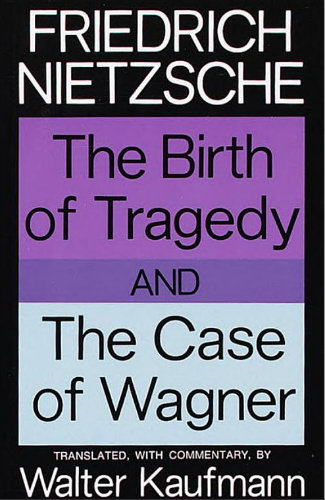Der Fall Wagner: Ein Musikanten-Problem, 1888. Recommended translation: The Birth of Tragedy and The Case of Wagner, trans. Walter Kaufmann, Random House, 1967.
Excerpt:
I am writing this to relieve my mind. It is not malice alone which makes me praise Bizet at the expense of Wagner in this essay. Amid a good deal of jesting I wish to make one point clear which does not admit of levity. To turn my back on Wagner was for me a piece of fate, to get to like anything else whatever afterwards was for me a triumph. Nobody, perhaps, had ever been more dangerously involved in Wagnerism, nobody had defended himself more obstinately against it, nobody had ever been so overjoyed at ridding himself of it. A long history—Shall I give it a name?—If I were a moralist, who knows what I might not call it! Perhaps a piece of self-mastery—But the philosopher does not like the moralist, neither does he like high-falutin’ words.
What is the first and last thing that a philosopher demands of himself? To overcome his age in himself, to become “timeless.” With what then does the philosopher have the greatest fight? With all that in him which makes him the child of his time. Very well then! I am just as much a child of my age as Wagner—i.e., I am a decadent. The only difference is that I recognized the fact, that I struggled against it. The philosopher in me struggled against it.
Online:
Barnes & Noble (Recommended Translation)
Project Gutenberg (Free Access)
Nietzsche Source (Critical Edition, German, Free Access)
